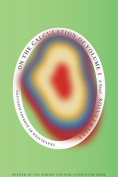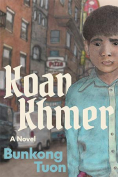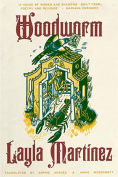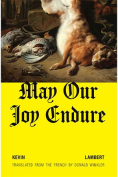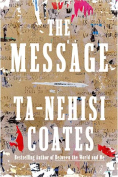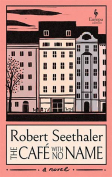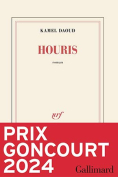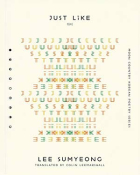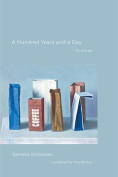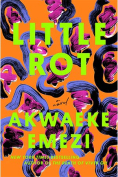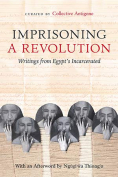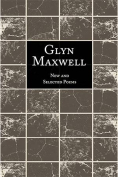May Our Joy Endure by Kevin Lambert
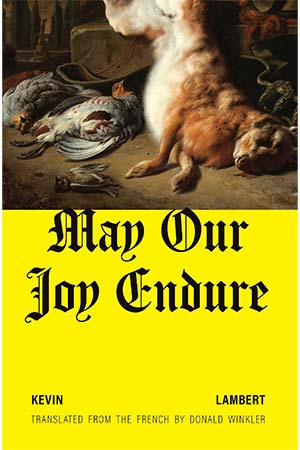
Windsor, Ontario. Biblioasis. 2024. 291 pages.
Kevin Lambert’s celebrated novel May Our Joy Endure is a “chant” that crescendos as the writer explores the widening chasm between the rich and the community. His story, set in modern-day Montreal, depicts the housing crisis through the various players involved.
The novel primarily follows Céline Wachowski, a world-renowned architect whom others regard as “transcend[ing] the human envelope in which the gods have enclosed her.” When Céline is personally contracted to design and build the Webuy Complex, she sees the opportunity for her architecture to transform Montreal. However, after a scathing article accuses Céline of prejudiced hiring practices and her various projects having led to gentrification, Céline finds herself ostracized from society and deposed as her firm’s CEO.
Lambert’s characterization of Céline is far from simple. While he perpetually reminds the reader of Céline’s immense wealth and the disparity between her and the average citizen, he makes her empathetic. Céline, a woman who created her wealth through skill and persistence, believes in the revolutionaries’ plea for change but struggles to view herself as a perpetrator of injustice. Lambert reasserts that the issue is not with the individual but with the system that creates billionaires while leaving the majority to rot.
May Our Joy Endure is split into three sections: two major scenes frame the middle section with concise chapters. Lambert begins the narrative with a dinner scene spanning seventy pages, immersing the reader in the rich’s frivolity. This introduction features long, elaborate sentences drenched in opulence. In Lambert’s second section, he interweaves the critics’ perspectives and Céline’s employees to create a mosaic in the narrative. Lambert’s writing style shifts to encapsulate the various personas. Whereas Céline’s thoughts read as defensive and convoluted to defend her actions, Lambert writes his activists as more brazen and direct. Lambert does not simplify his activists but stresses how their concern for housing and economic inequality consumes their lives. The tension woven throughout the novel culminates in the final act as Céline’s privacy and safety are invaded. Lambert destroys the peace within Céline’s home, criticizing the materiality of the rich and their hypocritical concern for culture.
Superbly translated by Donald Winkler from the original Que notre joie demeure (2022), May Our Joy Endure is an enjoyable read that leaves readers with an itch under their skin as they reexamine the consequences of privilege. Lambert’s antagonists are not mythical creatures but humans that fall prey to ambition, a fault not unique to any one individual.
Kaitlyn Denton
University of Oklahoma


